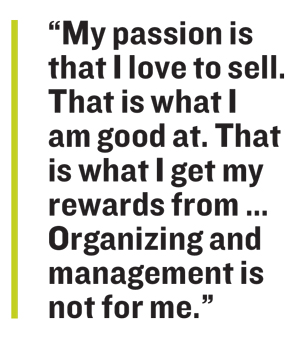In Greenwich, perhaps no name has been as synonymous with the luxury real estate market as David Ogilvy, the head of David Ogilvy & Associates, which he founded in 1985. The broker made headlines for closing the record-setting $120 million sale of Connecticut’s Copper Beech Farm in 2014. But the times, they are a-changin’, and amidst much consolidation of resi brokerages nationwide, Ogilvy announced in July that he would be selling his firm to Sotheby’s International Realty. At the time of the transaction, Ogilvy and his eight brokers were representing 28 properties totaling $138 million in list prices. That boosted Sotheby’s portfolio in the region to 169 properties with total list prices adding up to $800 million, according to the brokerage. The Real Deal caught up with Ogilvy to find out why he’s cashing in his chips and what he sees happening in the local luxury market. The following interview has been edited for clarity and length.
So, to ask the obvious question, why did you decide to sell to Sotheby’s? There’s a time for everything. I don’t know if you’ve read a book called “The Peter Principle” [which is a concept that posits that people tend to top out in an organization when they reach or exceed the limits of their talent]. What happens is you become a little more oriented toward management. My passion is that I love to sell. That is what I am good at. That is what I get my rewards from. I really do enjoy putting the pieces together. That is what gets me out on the road. I don’t do well sitting in an office. For me, it was a great moment in time. You can’t do things for all people all the time, but my great interest has been selling and also advertising, which is what I grew up in. Organizing and management is not for me.
Did you get a good price? Of course!
How much was it? Ha! For me to know and you to find out.
 How about your people? You took eight brokers with you. Has their fee structure changed at all? What happened was with each of them I said, “Listen, this is what I would like to do and am going to do. I will make arrangements for you each to go up there and have an interview, and then if you like it, that’s a great place to go.” That’s my choice, and each one of them did. They reacted to it much the same way I did.
How about your people? You took eight brokers with you. Has their fee structure changed at all? What happened was with each of them I said, “Listen, this is what I would like to do and am going to do. I will make arrangements for you each to go up there and have an interview, and then if you like it, that’s a great place to go.” That’s my choice, and each one of them did. They reacted to it much the same way I did.
Why did you end your affiliation with Christie’s International Real Estate in favor of the Sotheby’s deal? Christie’s is wonderful, and we worked with them for many years. But things change, and they have shifted their focus to other areas. I loved the brokers I met at Christie’s and will continue to work with. But with Sotheby’s, this office is so powerful. When you’re in a small, principal-owned office, you’ve got to do everything. It’s much better delegation for me not to have to do everything but to concentrate on selling. That is what people want from me.
What’s going on with the luxury home market? The big ones don’t seem to be selling any more, or at least for what their owners want. What’s the problem? They actually do sell. This year in Greenwich there was a wonderful waterfront property in Field Point Circle that sold for $48 million. It’s a beautiful house and a beautiful piece of property with great views. It came to market and very quietly sold, and everybody was just astounded. We just listed and sold a house on Byram Shore Road at $18.6 million. That was on the market for three weeks, maybe.
Does that mean the high-end market is waking up again? Waterfront is in a special league by itself. But that doesn’t mean you can’t overprice or not market correctly. You can’t just roll over and sell anything. It takes salesmanship. Those are two very good examples of things that sold very quickly, and I am very happy about that.
You’ve been behind some headline-grabbing deals in Greenwich, like the $120 million Copper Beech Estate sale in 2014. How do you navigate the highest echelon of the market, with its demands for the utmost secrecy? It is easy to do it. I grew up in a family where my father ran one advertising agency [Ogilvy & Mather], his brother ran another big advertising agency in London, and my mother’s sister’s husband ran a third big agency in New York. So I learned at the dinner table that what you heard at one table, you just shut up and never mentioned again. If you’re seven years old and you learn that, you just don’t talk about things that should not be talked about. I’m not talking about bad things. These are competitive issues. What I heard at dinner on one table could have sunk something at one of the other tables if I spilled the beans to another person.
How do you deal with the big egos involved in the priciest sales? Egos are great. It’s required to have an ego. We all have egos, and it’s just a question of how you manage them. But if you end up liking the people and they end up liking you, it makes it a whole lot easier and nicer.
